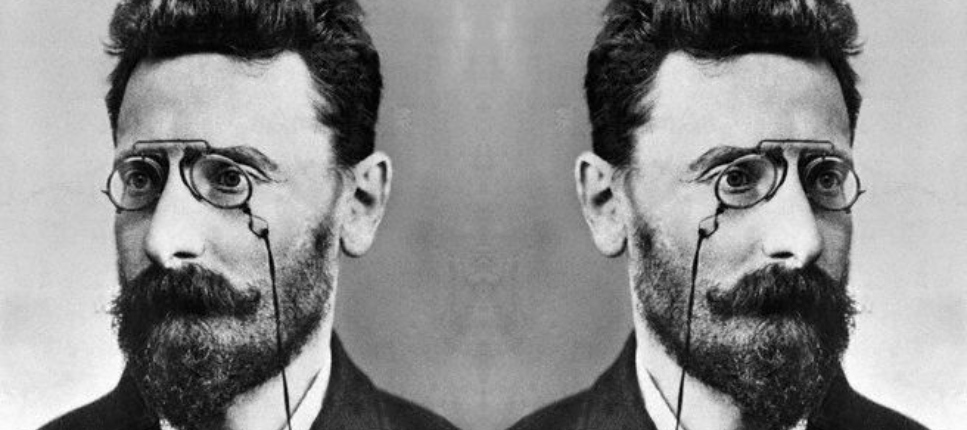TODAY: In 1911, Joseph Pulitzer is born.
-
“I used to think authors who spent 20 years writing a book must be sad, pathetic creatures.” Devoney Looser on writing (slowly) about sister-novelists Jane and Anna Maria Porter. | Lit Hub Craft & Advice
-
The most important poem of the 20th century: On T.S. Eliot’s “The Waste Land” at 100. | Lit Hub Criticism
-
“All things brain-related were hot.” When a scientific zeal for gray matter led to the theft of Albert Einstein’s brain. | Lit Hub Science
-
Darryl Pinckney on working for the New York Review of Books as a young black writer: “Bob and Barbara are dinosaurs and we’re these mammals running around afraid of getting squashed.” | Lit Hub Memoir
-
Celeste Ng’s Our Missing Hearts, George Saunders’s Liberation Day, and Paul Newman’s The Extraordinary Life of an Ordinary Man all feature among the Best Reviewed Books of the Month. | Book Marks
-
Let CrimeReads EIC Dwyer Murphy guide you through the best crime shows to watch this November. | CrimeReads
-
How did Halloween become a commercial holiday in America? | JSTOR Daily
-
Barbara Kingsolver on Doris Lessing, John Steinbeck, and the evergreen relevance of Middlemarch. | The Guardian
-
Ed Simon offers a literary ode to coffee: “The ritual of counting out scoops as if repeating the rosary, the brewing’s percolation which sounds like a prayer wheel, the first sip which feels like Nirvana.” | The Millions
-
“No other tradition in world literature has so valued friendship or made as poignant the inevitable loss and separation of earthly bonds.” Dennis Zhou on Wong May’s translations of Tang Dynasty poets. | Poetry
-
Haruki Murakami talks magic, music, and cold beer. | Interview
-
“As an author, dear god, please do not make BookScan data public!” Lincoln Michel on the limitations of data. | Counter Craft
-
Lila Shapiro digs into Stephen Elliott’s lawsuit against Moira Donegan, creator of the “Shitty Media Men” list. | New York Magazine
-
“Trump still understands the game he’s playing better than the press does.” George Packer on all the Trump books—and his argument for ignoring the former President. | The Atlantic
-
Five writers share their memories of Mike Davis. | Los Angeles Review of Books
-
“We’re not going to bring things back to the way they were. That falls to a higher power.” Annie Proulx on environmental writing and the realities of climate change. | Vogue
-
“I try—with Kierkegaard’s help—to climb from the basement to the top! As do many of my protagonists.” Vigdis Hjorth on process, scapegoats, and ecological crisis. | Astra Magazine
-
“It’s like when the West goes into Africa, sees the art, sees the culture, then literally seizes the physical artifacts and brings them home.” How a translation of M. NourbeSe Philip’s Zong!, a book-length poem about a slave ship massacre, erased her voice. | The Walrus
-
What will we eat at the end of the world? The Anthropocene Cookbook has some ideas. | Atlas Obscura
-
“Writing is a form of activism.” An interview with George M. Johnson, author of All Boys Aren’t Blue, one of the most-banned books in the US. | NPR
-
Maggie Doherty reflects on Elizabeth Hardwick, Darryl Pinckney, and how literary life can be shared. | The New York Times
Also on Lit Hub:
Paul Newman on the “lusty time” he had filming The Long, Hot Summer • Cooking with Sylvia Plath through her posthumously published journals • Serhiy Zhadan on Ukraine and Russia, justice and peace • Why you won’t find Lee Child or Andrew Child organizing their bookshelves • How the baby stroller embodies parental hopes and fears • On Charles Sumner’s radical, compelling message of abolition • How Republicans incited their followers to insurrection • Do Icelanders really, truly believe in elves? • “We are the stories we are told and we are the stories we tell ourselves.” • On the grief of publishing a book without the parent who inspired it • Considering the banjo’s spiritual and cultural significance • Anna Badkhen explores the etymologies of maps • America’s first media circus around a murder case • How humans discovered the unseen world of cells • On the appeal of the sobriety narrative • How the Supreme Court failed to stop the Trail of Tears • The shared artistic visions of Martha Graham and Wassily Kandinsky • How Lucy Ferris’s novel about a post-Roe world disappeared 25 years ago—and how it came back • What a reporter can learn from a source’s silence • The etymological origins of the renaissance • The sartorial taste of Rolling Stone drummer Charlie Watts • You should probably watch the very campy Godzilla vs. Hedorah • Karon Liu on the magic of dumplings • How the Jane Collective revolutionized the abortion conversation • Bill McKibben on the power of climate crisis posters • How to write ethically about social issues • How the California Gold Rush destroyed peace in the American West • How rock and roll came to Sioux Falls, Iowa • How stories dominate every facet of our lives (for better and for worse) • A recipe for green eggs and ham (and biscuits!) • Jeanna Kadlec on why a journal is definitely not a memoir • A look at the only US school dedicated to teaching refugee girls • Emily Urquhart explores villain/helper tropes in a small maritime town
